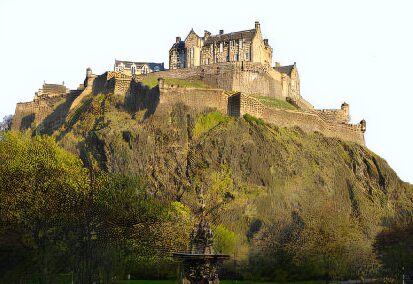Circa 1454 - 1485
Alexander Stewart was the second son of King James II of Scotland and Mary of Gueldres, the daughter of Arnold, Duke of Guelders, and Catherine of Cleves. He was created Duke of Albany by his father the king before 1458 and was also given the earldom of March and the lordships of Annandale and the Isle of Man.
Alexander's elder brother succeeded to the Scottish throne as James III on the death of their father at the siege of Roxburgh Castle on 3 August 1460. On returning from the continent in 1464 Alexander was taken prisoner by the English but later released, after which he was further appointed Lord High Admiral of Scotland and Warden of the Marches. He maintained a policy of border violence and aggression against England in the Marches. Albany was married to Lady Katherine Sinclair, the daughter of William Sinclair, 3rd Earl of Orkney, who bore him three sons and a daughter including Alexander Stewart (before 1477 - 9 December 1537), who became bishop of Moray and Andrew Stewart. The marriage was dissolved in 1478, after which their children were regarded as illegitimate.
Edinburgh Castle
Of a character that was easily influenced by others, James III was convinced by those hoping to gain from their downfall that his brothers Alexander, Duke of Albany and John, Earl of Mar, were plotting against him and promptly struck out at them both, imprisoning them in Edinburgh Castle. Mar died of a fever but Albany managed a daring escape. Stronger than his brother, Albany was made more in their father's mould.
Alexander, alarmed at the King's unstable suspicions of him and suffering from what has been described as a second son complex, invaded the country, with an army supplied by the Yorkist King Edward IV. His army was led by Edward's highly able and ruthlessly efficient brother, Richard, Duke of Gloucester (later King Richard III). James stubbornly refused to renounce his unpopular favourites, the tempestuous Scottish lords reacted by taking and hanging six of them, including the much-despised Robert Cochrane. James was arrested at Lauder Bridge and carried off to Edinburgh a prisoner, leading to the ironic situation of his brother Albany and his ally Gloucester following hotly in pursuit of the captive King.
On their arrival at Edinburgh Castle, Albany reached an uneasy agreement with the rebel barons that he was to be announced, Regent. Albany's abiding mistrust of the barons was equalled by their mistrust of him, realising his precarious position, he suddenly turned coat and released his brother, restoring him to the throne with much-mooted protestations of "brotherly love and kindness" which evaporated soon after with unseemly haste.
In 1480, Albany married for a second time to Anne de la Tour d'Auvergne, the daughter of Bertrand VI, Count of Auvergne and Boulogne. They had a son, John (1484-1536) who married Anne's niece, also Anne de La Tour d'Auvergne. They also had a daughter, Maud Stewart, who died young.
Albany's adoption of the earldom of Mar greatly angered George Gordon, 2nd Earl of Huntly, one of the most powerful magnates in the country and who had designs on the earldom himself. Huntly came to the parliament of December 1482 where Albany hoped to have the lieutenant-generalship confirmed. The king meanwhile managed to persuade a number of the 'Lauder Lords' to return to loyalty to him, most notably John Stewart, Lord Darnley, keeper of Edinburgh Castle, Atholl and the Bishop of Dunkeld. As a result, the parliament passed a range of mutually contradictory acts, and Albany fled to his estates in Dunbar between Christmas and the new year.
On the death of his strong supporter, King Edward IV on 9th April 1483, finding himself in a vulnerable position, he took refuge in England. Albany returned to Scotland the following year, having acquired the support of the exiled Earl of Douglas and entered Lochmaben. The towns citizens remained loyal to the crown and ousted the rebels. The invasion was defeated and Douglas was captured at the Battle of Lochmaben, but James in a characteristically merciful gesture allowed him his life. Albany escaped to France, where he was killed the following year in a joust in Paris, reputedly by a splinter entering his eye. He was buried in the Celestine church. Alexander was succeeded as Duke of Albany by his son John Stewart.
David Stewart PreviousNext Lady Margaret
